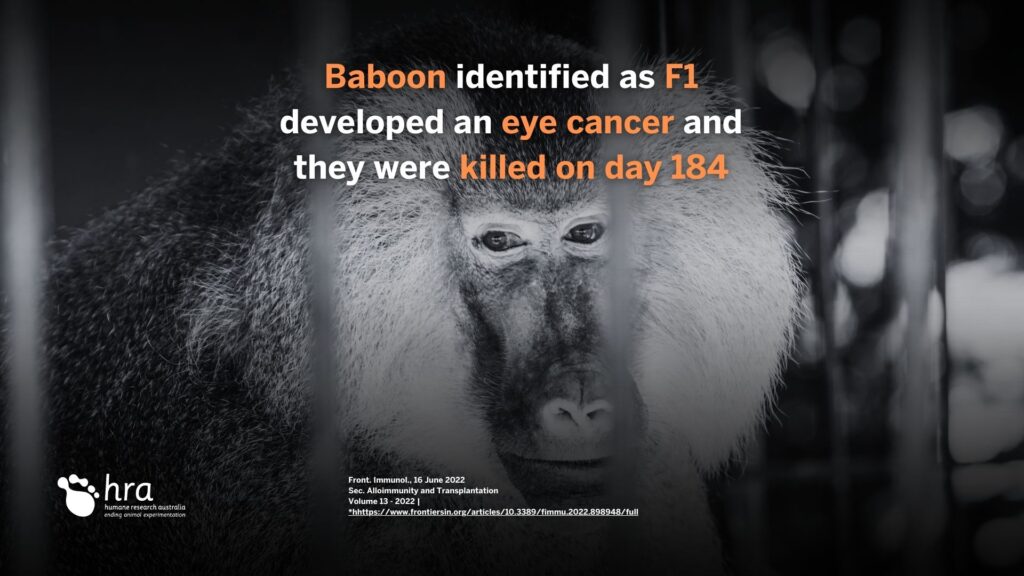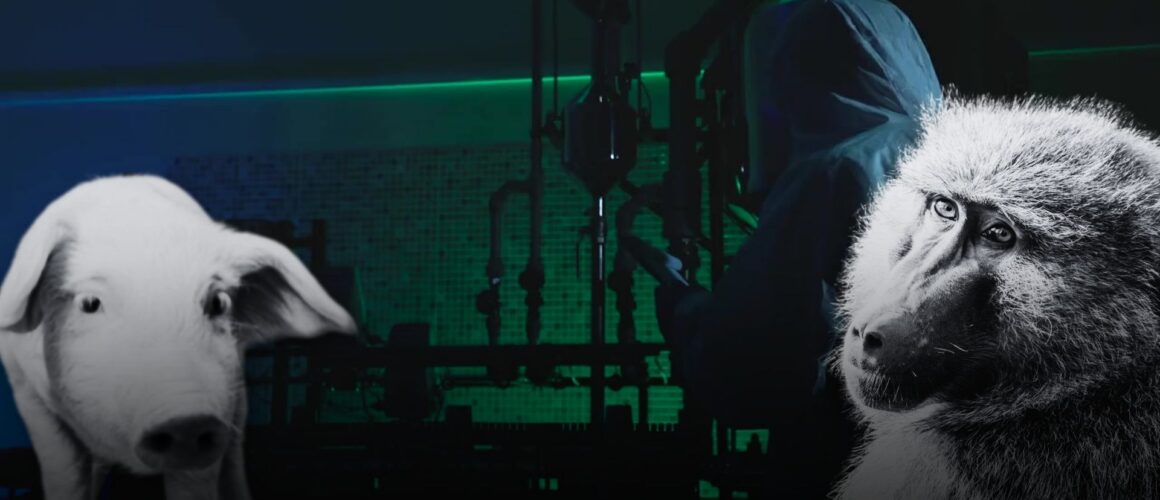Xenotransplantation
is a medical procedure where organs or cells from one species, in this case, piglets, are used to treat diseases in another species, such as diabetic-induced baboons used in this research.
Take action and share this shocking story to Twitter
#News: For an #Animalexperiment at #Sydney‘s @WestmeadInst, 70 #piglets were used to treat 5 baboons who were made diabetic, later killed. Read more: #EndAnimalExperiments #AnimalTesting #xenotransplantation #piglets @animalfreesci https://animalfreescienceadvocacy.org.au/xenotransplantation-from-piglets-to-baboons/
In this study, researchers from Westmead Institute for Medical Research NSW genetically modified piglets, between 1 -5 days of age, to remove a specific molecule to make them produce human proteins that regulate the immune system. They then used these modified pig islet cells to treat diabetes in baboons that had been given drugs to suppress their immune system and render them diabetic. The baboons received a certain number of islet cells based on their weight.
Seventy donor piglets were used for 6 transplants into five diabetic-induced baboons
After the transplant, the baboons became independent of insulin injections within a few months and remained so for an average of about a year. After the experiments, all baboons were killed (up to almost 2 years later in some cases). Biopsies of the baboons’ livers showed that the transplanted islet cells (clusters of cells in the pancreas that produce hormones) were functioning properly and there was no evidence of inflammation or immune response against the pig cells. The immune-suppressing drugs used in the study prevented the baboons from developing antibodies against the pig cells. However, the compound (CD154) relied upon in the experiment is not available for clinical use due to the risk of potentially fatal thromboembolic (obstruction of blood vessel) complications.
The five baboons, identified by number, not name, were killed up to two years after the experiment.
Baboon identified as F1 developed ocular lymphoma (a type of eye cancer) and was killed on day 184
Baboon W1 developed ingrown teeth and inflammation and was killed on day 207 and
Baboon 01 developed severe ulcerative papillomatous skin lesions (warts or lumps that have become ulcerated) on the hands feet and mouth and was killed on day 413.
Our concerns

HRA has many concerns about this type of research including the reference to 1-5 day old piglets being ‘donors’ when in fact none donated their lives for this research. The baboons suffered debilitating conditions during the course of the experiment and all were killed during or at the end of the experiment. Further, xenotransplantation of cells is a precursor to the transplantation of animal organs into humans of which there is much community concern.
Learn more and take action

For more information on xenotransplantation and further actions you can take, visit our xenotransplantation page.
It is also a concern held by many, including researchers, that there is simply not enough donated pancreata in the human population to treat people with Type 1 Diabetes. Increased awareness about human donation needs to be explored and funded in lieu of dangerous and unethical animal experimentation.
Information about organ and tissue donation in Australia can be found here at HealthDirect.gov
This research was funded by Australian government grants (National Health & Medical Research Council – Numbers 1061868, 1156889, 447718) and the Juvenile Diabetes Research Foundation, 2017.
